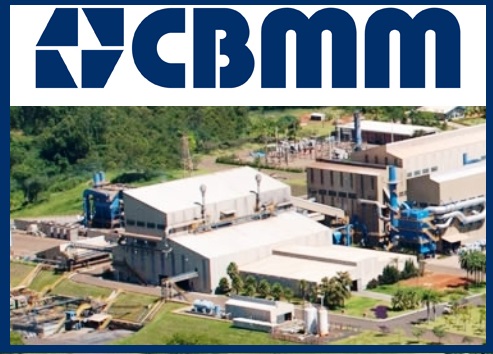Company owned by the Moreira Salles family plans to develop more applications for the metal
04/24/2024

CBMM, the world’s largest niobium producer, is expanding investments to develop new applications for the metal. After disbursing R$230 million for this purpose in 2023, the company controlled by the Moreira Salles family set aside another R$270 million in 2024.
“The company’s biggest focus is on research and development. This guarantees the market’s capacity to grow,” Rafael Mesquita, CBMM’s chief technology officer, told Valor.
The use of niobium in steelmaking still represents the most important share of sales. However, the battery and nanomaterials segments advanced faster than the steel industry in the use of metal last year. In total, sales of the company’s niobium products rose 5%, to 92,000 tonnes, of which 95% were exported.
With a production capacity of 150,000 tonnes of ferroniobium per year, CBMM chose to “stay ahead of the market”—which is currently 124,000 tonnes per year—precisely to support the innovation front.
According to Mr. Mesquita, 2023 was a year of “good growth” for the market, mainly reflecting the successful development of new battery applications. “In this case, growth came in associated with investments in technology and open innovation, with development together with customers and research institutions,” he said.
For 2024, the company plans to maintain investments in the battery materials and technology division at around R$80 million, repeating the size of last year’s investment.
Rodrigo Amado, head of CBMM’s battery division, explained that 2022 was the first year of significant sales for use in batteries, with 400 tonnes. In 2023, there were 600 tonnes. This year, sales are expected to exceed 1,000 tonnes.
According to the executive, there are currently three major applications for niobium products in batteries, the largest being material coatings—accounting for 70% of the company’s sales in this segment. Batteries are CBMM’s fifth-largest business segment but are expected to rank second in two years.
In partnership with Toshiba Corporation and Volkswagen, the company plans to present this year the first electric bus in the world with mixed niobium and titanium oxide technology in lithium batteries, enabling fast charging with greater durability and safety.
Still, there are also horizons of innovation in steel, some of which are rapidly growing and are better known, such as the use of niobium to obtain lighter structures in construction, said Mr. Mesquita. Other promising areas are superalloys for medical applications and nanotechnology.
In partnership with WEG, the company is working on applying a nanocrystalline material, which contains niobium, in electric motors, with important gains in performance in experimental validation tests. There is also the possibility of using it in non-toxic pesticides with better performance than the typical ones.
Last year, CBMM saw its net revenue grow by 3.6% to R$11.4 billion, while earnings before interest, taxes, depreciation, and amortization (EBITDA) amounted to R$7.9 billion and net profit reached R$4.9 billion, compared to R$4.5 billion in 2022.
*Por Stella Fontes — São Paulo
Source: Valor International
